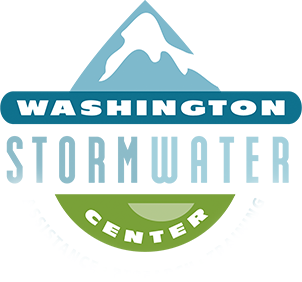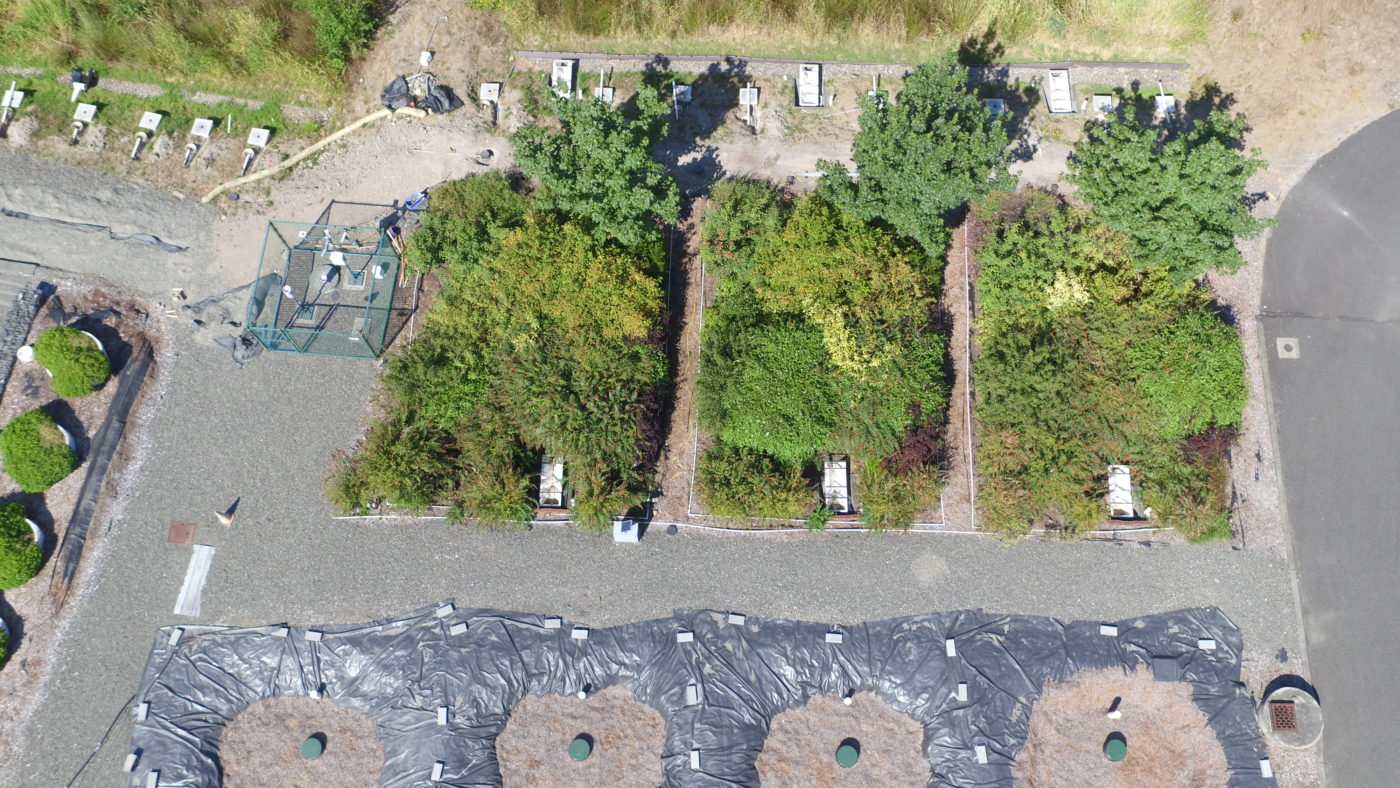
Research Infrastructure
Located in Puyallup, WA, the WSU LID facilities are full scale research opportunity. The system was designed to be flexible and function in a variety of research capacities. There are 2 permeable pavement parking lots (porous asphalt and pervious concrete), 16 rain gardens and 20 mesocosms (mini-rain gardens, or deep tanks) on site.
The systems can receive stormwater from natural storms delivered by gravity flow: alternatively, synthetic stormwater can be blended and applied from cisterns at specific flow rates, volumes, and pollutant concentrations.
Explore Research Infrastructure…
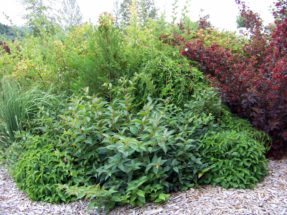
Rain Gardens
The facility collects stormwater from roads and rooftops in a large cistern (approx. 11,356 liters, or 3000 gallons) allowing for the application of stormwater at various hydraulic and pollutant loads. Unlike typical rain gardens, all of the research rain gardens are fully lined with a pond liner as well as instrumented to continuously monitor flow and water quality treatment.
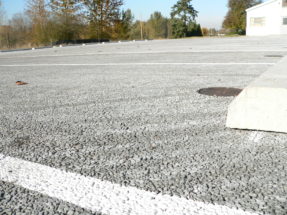
Permeable Pavement
The main parking lot at WSU Puyallup (located behind Kalkus Hall) is comprised of 2 types of permeable pavements—porous asphalt and pervious concrete. While the entire parking lot provides stormwater management benefits, nine separate asphalt cells and six concrete cells divided by concrete curb are dedicated to research.

Mesocosm
20 mesocosms at the Puyallup LID research center mimic rain gardens on a smaller scale. The mesocosms are plastic tanks approximately 2 meters in diameter and 1.25 meters tall. Published in 2016 (?), this research paper focused on the use of the mesocosms to investigate various soil mixes dosed with stormwater containing known concentrations of pollutants.
